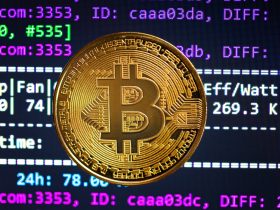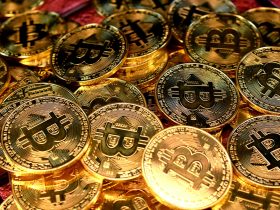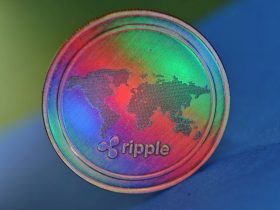If 2021 was the breakout year for NFTs as the latest blockchain trend, many observers and analysts are convinced 2022 will be the year DAOs, Decentralised Autonomous Organisations, step into the limelight and grab attention. But what exactly is a DAO, how do they work, what’s their purpose and will they have a real-life impact in years to come or will represent a passing fad?
Interest in NFTs, non-fungible tokens which designate uniqueness and originality to digital files, most notably works of art and collectables such as Jack Dorsey’s first ever tweet, rocketed on news one had sold for a record $69 million in March 2020. There had been NFT sales worth millions before but the size of the figure paid to secure the work by digital artist Beeple, otherwise known as Mike Winklemann, when it was auctioned by Christie’s, captured the imagination.
Beeple, who until several months earlier had never sold a print of his work for over $100, was suddenly one of the top three most valuable living artists. The $69 million paid for the NFT, “Everydays: The First 5,000 Days”, was stumped up by Vignesh Sundaresan, a crypto investor and co-founder of bitcoin ATM company BitAccess.
The market for NFTs soared to more than $10 billion in trading volume in the third quarter of 202, a more than 700% jump from the prior three months. Over the fourth quarter, that rose to $11.6 billion, taking the total market value to $25 billion for they year. Year-on-year the market’s growth rate hit 20,000% from less than $100 million in 2020.
In November last year, another surprising price was fetched at auction. Soban Saqib, a 25 year old NFT collector, bought a Dune pitchbook written by the film-maker Alejandro Jodorowsky who wanted to make the film, for nearly $3 million. The original plan was for it to be acquired directly by a DAO he is a member of, SpiceDAO.
The blockchain-based community was then asked to collectively contribute $6 million: $3.8 million to buy the pitchbook from Saqib and compensate him for taxes and legal fees, as well as another $2.2 million to fund an animated film “inspired” by the book.
However, the book didn’t come with any of the copyrights to Jodorowsky’s Dune, meaning the group can only practically use the notes and sketches to develop their own fan fiction. SpiceDAO commented:
“While we do not own the IP to Frank Herbert’s masterpiece, we are uniquely positioned with the opportunity to create our own addition to the genre as an homage to the giants who came before us.”
Another DAO, ConstitutionDAO, failed in a high profile bid to buy a copy of the U.S. constitution, eventually losing out at auction. The 17,000-strong DAO had raised $40 million to buy the document, one of 13 original copies from 1787 originally valued at between $15 million and $20 million by Sotheby’s, the auction house. The hedge fund billionaire Ken Griffin eventually became the document’s new owner after bidding $43.2 million, pipping the DAO at the post.
But what exactly are DAOs and can we expect them to make more high profile impacts at auctions this year? What else can these blockchain-based decentralised communities be used for? And is it just another way for a select few to make fortunes from thousands of naïve crypto enthusiasts or a genuine technology-inspired new form of crowdfunding and community building that will establish itself as a force in coming years?
What exactly is a DAO – Decentralised Autonomous Organisation?
Arguably the two best known blockchain-based brands are Bitcoin and Ethereum. The former is a pure cryptocurrency and the latter a smart contracts platform powered by its native cryptocurrency Ether. Bitcoin has a market capitalisation of $738 billion and Ether $332.5 billion.
Yet despite their success, neither are companies and have no CEO, board or management to oversee how they run and develop future strategy. The blockchains both are built on are managed by consensus. “Miners”, who lend the computing power that achieves the work of maintaining both blockchains can all vote on changes to how the network works.
Changes work by one developer making a suggestion on how to update the blockchain by inacting changes on their node. If others agree, they accept the changes. If the number of stake holders who approve a change passes 50%, the blockchain itself is updated.
However, getting a consensus this way can take a long time and if there is a deep enough schism in the community the blockchain “forks”. Essentially it splits into two with one group carrying on with the current version and another with the updated version. Bitcoin Gold and Bitcoin Cash, both major cryptocurrencies in their own right, are the result of forks in the Bitcoin blockchain.
Bitcoin’s blockchain, which famously sucks up vast amounts of energy to run, is an early version of the technology that performs the relatively straightforward role of a digital ledger, keeping track of transactions and a record of ownership. Ethereum is a more sophisticated blockchain. Its smart contracts technology can carry out functions like those of banks or exchanges, as well as be used to create other things like video games and NFTs.
And Ethereum, launched in 2015, is also now considered a slightly dated blockchain, albeit one that is still widely used. New smart contract blockchains are, however, nimbler, and allow for stakeholder consensus to be reached more quickly and efficiently.
DAOs are blockchains that represent collectives of members that use the technology’s decentralised automation of consensus to take decisions. DAO members usually buy tokens native to their blockchain which confer voting rights. The system has been compared to a high-tech version of a “group chat with a bank account” – metaphor coined by Jonah Erlich, a member of ConstitutionDAO.
Smart contracts encode rules that lead to automatically executed actions when defined conditions are met. For example, funds collectively raised can only be transferred if a majority of token-holders approve the transaction.
What are DAOs used for?
The fist known DAO was built on the Ethereum blockchain in 2016. It was set up as a kind of decentralised venture capital fund which members contributed cryptocurrency to. Members could also then pitch their own blockchain projects and potentially raise investment from the collective funds if they secured the support of enough voters.
It raised $150 million worth of cryptocurrencies quickly but two months after it was launched a hacker was able to steal 3.6 million Ether, worth $70 million at the time. However, despite that early roadbump DAOs continued to be created. Some now run stablecoins including dai which is pegged to the dollar and controlled by MakerDAO. MakerDAO token-owners can vote on the blockchain’s rules around interest rates, which are used to maintain the peg and balance supply and demand.
Other DAOs raise funds to acquire physical assets, like SpiceDAO’s purchase of the Dune pitchbook. FriesDAO has just raised almost $150 million in 2 days. The funds will be used to contract traditional enterprises to acquire and run well-known fast food franchises on behalf of friesDAO.
Members who want to participate in the DAO can donate to its treasury. In return, they will receive membership tokens, which represent governance rights for the DAO’s future growth and processes.
Other DAOs speculate on cryptocurrencies and other digital assets like NFTs. The renowned Silicon Valley VC firm Andreessen Horowitz recently invested in PleasrDAO, which in turn invests in NFTs.
Are DAOs just another way for “crypto-bros” to get rich on the back of naïve crypto-enthusiasts?
There have, inevitably, already been DAO scams. One of the highest profile “rug-pulls” of last year, scams that involve the set-up of a blockchain project which attracts investors before those behind it disappear with the money, involved a DAO. Backers of the Doge-themed Anubis DAO had $58 million stolen.
Can democratic companies and organisations work?
While there is plenty of scepticism, like every other blockchain trend, DAOs divide opinion. Sceptics see the trend as simply the next craze that will fleece naïve investors hoping to get rich quick. Others look at DAOs as a fascinating social and technological experiment in the democratic governance of entities that control significant sums of money.
If democracy can work as a political system for nations, why can’t it also work for companies? But is the democracy introduced into DAOs really any different to shareholder voting rights in public companies? Are DAOs a solution looking for a problem? It’s a criticism often levelled at blockchain technology and projects.
Time will tell but expect to hear a lot more, good and bad, about DAOs in 2022.








